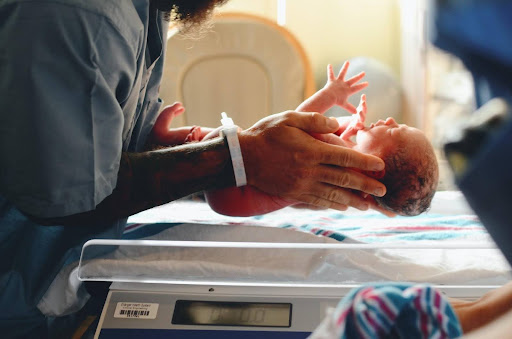After you have gone through the miracle of childbirth, you might not feel like yourself. You are exhausted, your hormones are all over the place, and you are dealing with a whole new level of stress. It is normal to feel off, but you need to ensure there is nothing medically wrong that should be addressed. We will explore some of the common reasons why women feel unwell after giving birth, as well as some tips on how to cope.
From sleep deprivation to postpartum depression, there are a number of factors that can contribute to your overall well-being after childbirth. But with the right support, a good doctor and, if necessary, a good lawyer, you can get through this tough time.
Common Side Effects of Childbirth
Not feeling well after giving birth is normal. Your body has been through so much. It is common for women to experience a range of symptoms. These include but are not limited to exhaustion, mood swings, anxiety, postpartum depression, insomnia, headaches, muscle aches and pains, abdominal pain, vaginal bleeding, and discharge. If you are experiencing these issues, first, know that they are not abnormal.
However, this does not mean you need to suffer in silence. A doctor can still help with a number of these symptoms. Particularly if you are depressed, you can seek immediate treatment to help you get back on your feet and be the best mother you can be.
When to Talk to a Doctor
If you are not feeling well after giving birth, you should see a doctor as soon as possible. There are many different reasons why you may not be feeling well, and a doctor will be able to determine what is wrong and how to treat it. It is always better to be cautious when it comes to your health and well-being.
As we have mentioned, postpartum depression is a very common condition that can occur after having a baby. If you are feeling depressed, anxious, or just not like yourself, it is important to see a doctor so they can diagnose and treat your condition.
Moreover, some new mothers experience postpartum hemorrhage. This is when you bleed excessively after giving birth. If you are bleeding more than usual or if your bleeding lasts longer than six weeks, it is important to see a doctor so they can determine the cause and treat it accordingly.
What’s more, you could experience postpartum preeclampsia. This is a condition that can occur when your blood pressure becomes too high after giving birth. See a doctor if you think this could apply to you so they can monitor your blood pressure and make sure it does not become too high.
Seek Legal Advice
If you or your child have suffered a birth injury, you can seek legal advice from a lawyer who specializes in this area of the law. Birth injuries can include physical injuries, developmental delays, and even psychological trauma. A good lawyer will be able to help you get the compensation you deserve if this applies to you. If you can prove that you were injured during childbirth by a medical practitioner’s recklessness or negligence, and they are found liable, you can receive money to cover the physical, psychological, and financial losses you have suffered.
Physical and psychological damages include disability, post-traumatic stress disorder, and other mental illnesses stemming from the incident. The short and long-term financial effects of a birth injury can also be severe. This is due to ongoing medical costs, such as rehabilitation, care at home, surgeries, therapy, and lost income. All of this should be accounted for when it comes to awarding compensation for your losses.
Getting Back on Your Feet
If you have suffered an injury during childbirth or you are not feeling well after giving birth, there are a few things you can do to help yourself feel better. First, make sure you are getting enough rest. This is challenging with a newborn, but also essential. Seek the support of your partner, family, and friends to help you get the rest you need. It is important to give your body time to recover from the strenuous process of childbirth. Try to get as much sleep as you can, even if it means taking naps during the day.
Secondly, eat healthy foods and drink plenty of fluids. This will help your body to heal and give you the energy you need to care for your new baby. It is easy after giving birth to eat quick meals that are not super nutritious, but this is a mistake. Finally, take some time for yourself. Do not try to do everything at once. Ask for help from family and friends when you need it, and take some time each day to relax and rejuvenate.
Talk to Other New Mothers
Finally, talk to other new mothers about your experiences. They may be experiencing similar symptoms and can offer support and advice, or just a shoulder to lean on. There are many online forums and support groups for new moms. You can also ask your friends or family if they know anyone who has recently had a baby. Talking to others who understand what you are going through is invaluable.
If you feel isolated or unsupported, do not hesitate to reach out for help. There are many people who want to help you and will be more than happy to lend a listening ear or offer some practical advice.

So, new mothers who are feeling unwell after giving birth should seek medical help right away. Many women experience a range of emotions and physical changes after childbirth, and it is normal to feel overwhelmed or exhausted. However, if you are experiencing severe symptoms like excessive bleeding, pain, or fever, see a medic to ensure you are okay. Moreover, seek legal advice if you or your baby have suffered an injury during birth. You can get compensation for your losses. To get back on your feet, rest as much as you can and eat well. For emotional support, talk to other new moms. They will understand on a level that others cannot.




